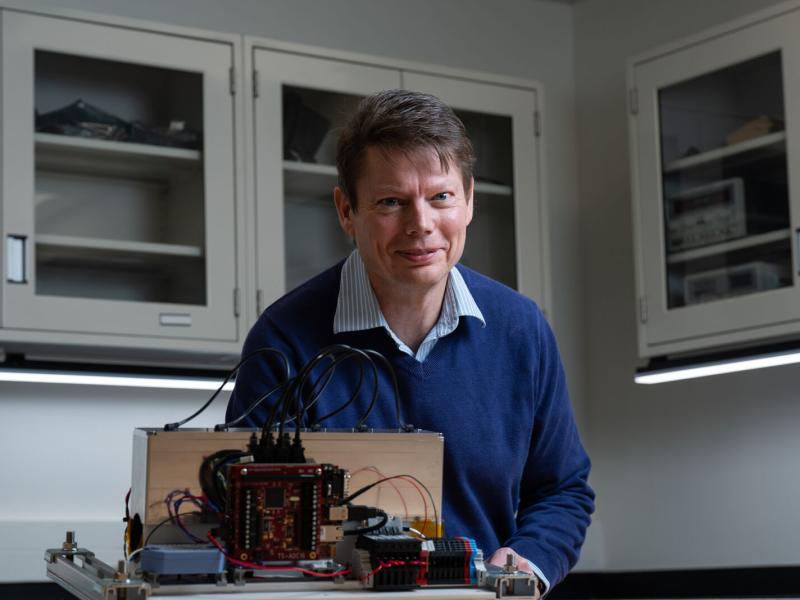
Nuclear
Nonproliferation
Nuclear
Nonproliferation
Detecting and controlling
the proliferation of
weapons of mass effect
Detecting and controlling
the proliferation of
weapons of mass effect
PNNL researchers are using acoustic technology to quantify the density and flow rate of UF6 gas in enrichment plants. NNSA is the primary sponsor of this research that supports international safeguards.
Andrea Starr | Pacific Northwest National Laboratory
Pacific Northwest National Laboratory (PNNL) supports the actions of the United States government to limit the number of nuclear-capable states and prevent terrorist access to materials and technology that can threaten the United States and its allies. This work enhances global stability and constrains the range of potential threats facing the nation. We have been working to reduce these threats throughout our history as a national laboratory.
home to radiological research and development that advances nuclear nonproliferation technology.
Stay connected and subscribe to Nuclear@PNNL. Each e-newsletter issue highlights the expertise of our researchers, their contributions to the nuclear mission space, and our state-of-the-art research facilities where discoveries and advancements are made.
Our nuclear nonproliferation roots grow deep
Our scientific roots in Hanford’s plutonium production efforts during the Manhattan Project and the Cold War gave rise to the capabilities and expertise we apply to nuclear nonproliferation efforts today. At the end of the Cold War, our staff helped governments in the former Soviet states secure nuclear materials that were vulnerable to theft. Since that time, we have partnered with our Department of Energy sponsors, other national laboratories, and the international community to improve physical security, install and help sustain detection systems, and lay the groundwork for a civil framework to sustain international safeguards and export control.
A multidisciplinary approach to nuclear nonproliferation
Nuclear nonproliferation refers to deterring the spread of nuclear weapons to entities that do not currently possess them and deterring the increase of nuclear weapons by countries that already possess them. Work in this area often confronts a balance between the peaceful use of nuclear energy and threats—this is a dynamic environment affected by world events. Nuclear nonproliferation is a multifaceted endeavor, and progress requires a holistic approach across many disciplines.
Fundamental science discoveries in physics, chemistry, and biology and the engineering of detection systems advance national security solutions. PNNL’s nuclear nonproliferation research spans data science, nuclear explosion detection, legal and regulatory analysis, plutonium and uranium detection, low enriched uranium fuels, ultra-sensitive nuclear measurements, and nuclear forensics, among others.
PNNL convenes recognized experts in research and development, nonproliferation policy, systems integration and deployment, training and education, and nuclear security. Together, we work with our partners and sponsors and collaborate with international organizations to address current challenges, strengthen nonproliferation and arms control norms, and anticipate future threats.

